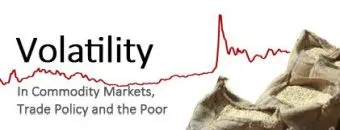ECOWAS
The Economic Community Of West African States (ECOWAS) was established in 1975 and reaches from the Atlantic Ocean (including Cape Verde islands) to the boarder to Chad and Cameroun and from the Gulf of Guinea to the Sahara dessert. The 15 member states are all lower-middle-income or low income economies (World Bank classification).
Agriculture is a major income source for the rural population and accounts for a significant share of total gross domestic product (GDP). With the exemption of Nigeria and Cote d’Ivoire, all countries hold a negative balance of payments and heavily rely on rice imports to guarantee food security. Food production is exposed to weather related shocks and strongly fluctuates over time. Climate change induced changes in weather patterns will exaggerate this trend in the coming years.
Research at ZEF focuses on spatial price transmission between major trade centers in West Africa and how transaction costs influence market integration. Empirical analysis takes into account similar seasonal patterns and covariate production shocks in order reveal transmission effects. Furthermore, potential gains of a common ECOWAS food reserve are discussed and assessed and weighted against its costs for each individual member country.
Publications
- Kornher, L. & M. Kalkuhl (2016). The Costs and Benefits of Regional Cooperation on Grain Reserves: The Case of ECOWAS. In M. Kalkuhl, J. von Braun, & M. Torero (Eds.), Food Price Volatility and Its Implications for Food Security and Policy. Springer International Publishing. [link]
- Kornher, L. (2015). Food price volatility: the role of stocks and trade. Ph.D. Thesis. University of Bonn, Bonn. [PDF]



